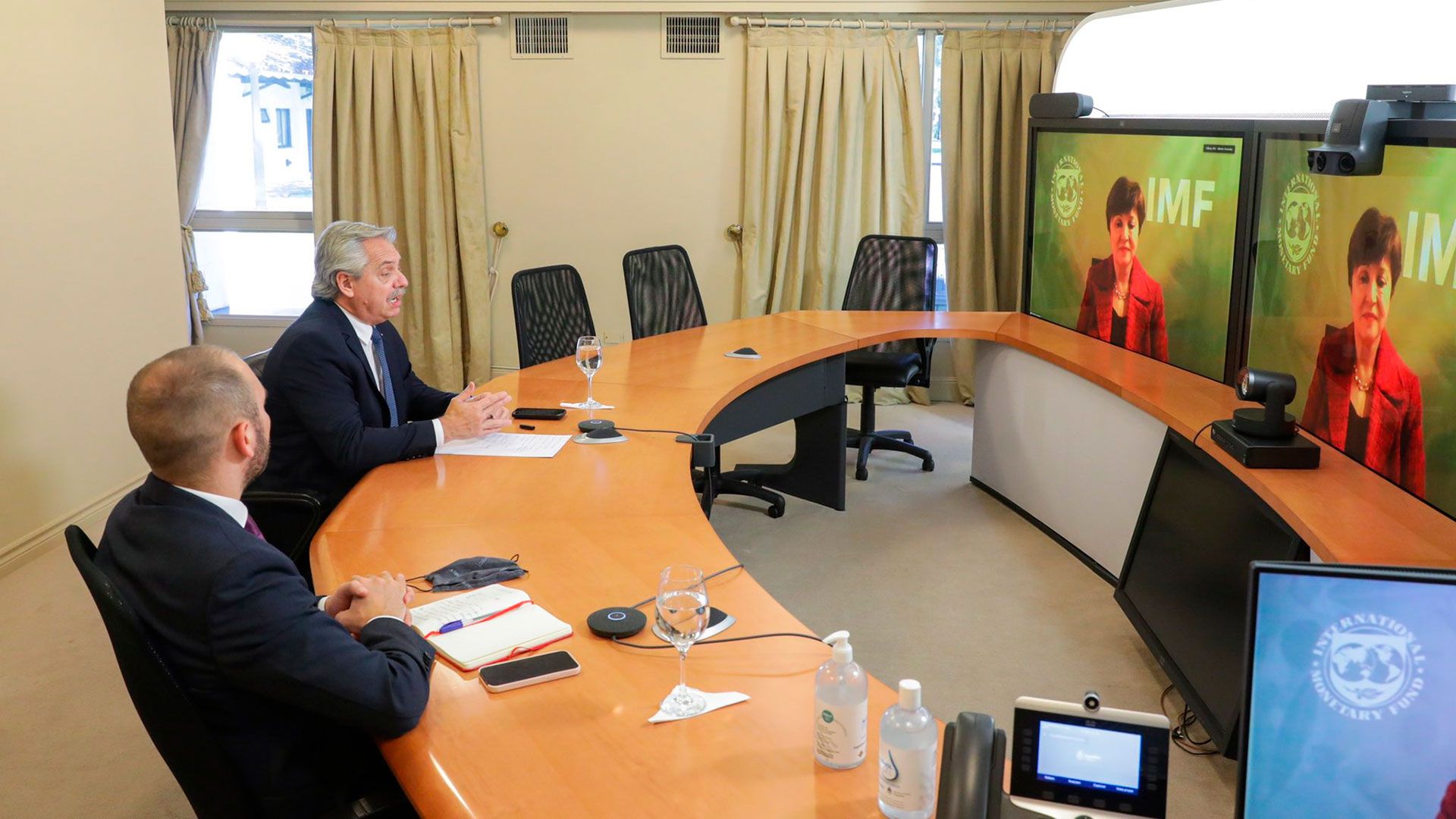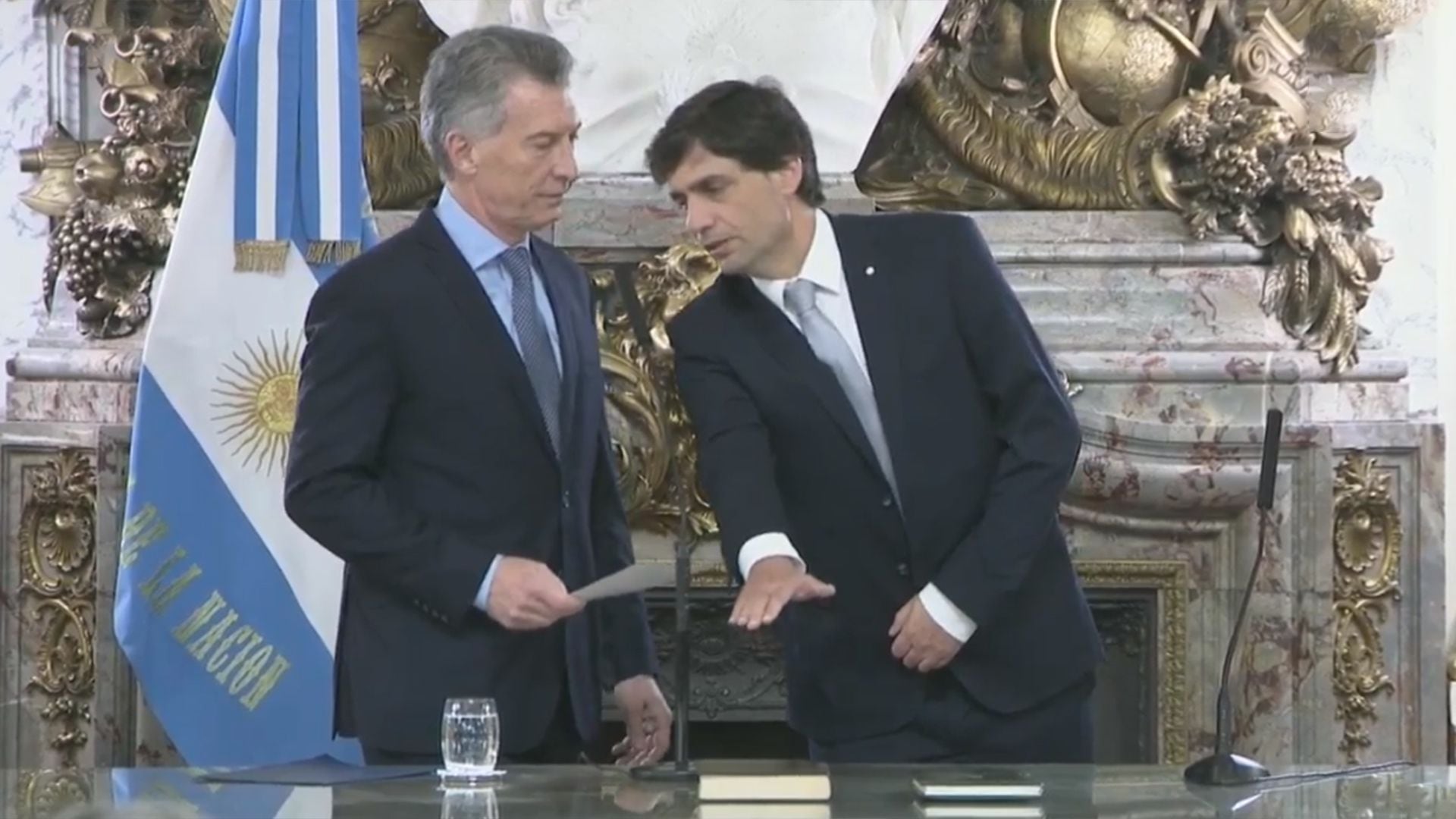
Despite parliamentary approval, much of the agreement concluded between Argentina and the IMF is still unclear to the economic benchmark of Together for Change, former Minister Hernán Lacunza. He assures that it is not yet known what plan to follow to fulfill the promises to the Fund and that the agreement does not include any of the solutions for Argentina to grow again. And also that it will bring adjustments both through tax increases and inflation, which does not need a war but “a solution that is within a triangle: Casa Rosada, Ministry of Economy and Central Bank”.
Close to both the “hawks” and the “pigeons” of his political space, he minimizes that division and admits that there is an economic plan in the making with 2023 in mind.
— The opposition always asked that the government show an economic plan or a roadmap. Does the agreement with the IMF comply with that?
— They are two different things. What the Fund did, and the government has accepted, is to put forward a roadmap and finally have a path with goals in the fiscal, monetary and exchange rate areas. An economic plan is what it takes to meet those goals. And that's not there. There are loose ideas, some even contradictory, but they are not explicit. On the subject of tariffs, for example, we explicitly attended a government intern 45 days ago. The official in charge of the area says one thing, his superior says another and the political authority says one thing on even days and the opposite on odd days. What will be done with transfers to provinces, public companies, interest rate, tax savings, exchange rate and many other issues, we don't know.
— Are the goals achievable?
— Yes, they can be fulfilled, but it is one thing to write it in a powerpoint and another thing is to carry them out. For example: they say that 0.6% of GDP will be saved by subsidies. With the announced increase in tariffs we are going towards the opposite, towards more subsidies, that is, more deficits. In theory they are achievable, they are not too demanding for at least the first two years, in which the government has (and the IMF has granted it) to achieve lighter goals, leaving the hardest part of 2024 onwards.
Is achieving less demanding goals a success for the Government in negotiating the agreement?
— The agreement will be successful if Argentines live better and with this program it will not happen. As far as we know it, and if the goals are met, the government will immediately have some exchange rate oxygen. But nominal variables are growing by 10 percentage points per year. In 2020 it was 30-something, in 2021 it was 40-something and in 2022 it will be 50-something, both for inflation, exchange rate, interest rate or wages. In addition, it generates a very important peso debt for the next government, it follows the idea of procrastinating the problems. They did so with the restructuring of debt with private creditors, with maturities that accumulate only from 2026 and 2027, and now they did so with the Fund. In the short term, the agreement will bring exchange rate relief but inflation will not be resolved, in the medium term there will be a huge debt in pesos and in the long term none of the obstacles to growth are resolved.
Is it good that structural reforms have not been required?
— The government is proud because it will not make any labor changes, neither tax nor exchange rate. It enshrines that as a success, as if all those things worked well. Why are we going to grow if we continue with more of the same? This government won't even be able to relax the stocks with soy at $600.

How does the fact that the programme has parliamentary endorsement impact on the implementation of the programme?
— The Fund does not ask for congressional endorsement, neither here nor in any country in the world. The alleged improvement in institutional quality that implies that the agreement has a legislative debate, did not occur. The government took two years and three months to bring to Congress an article and a powerpoint with a chart with goals. And he gave Congress two weeks to discuss it. That is more than an institutional improvement, it is a political ambush. The government is usually autonomous for good news, which has to do with distributing. Those are given by decree. But he's too republican for bad news, which makes it pass through Congress. The decision responds to that logic.
— Does the official who have to implement these goals, who may even belong to your party, in a few years, change something that the program has been voted on by Congress?
— I think that the current economic authorities saw the onslaught against the previous authorities two years ago and that is why, in order to preserve themselves, they sought legislative endorsement.
— In the debate there were strong reproaches against the debt owed to the IMF in 2018. Did he generate any self-criticism in Juntos or do you see it as part of the ambush?
— We have already done self-criticism, we can repeat it as many times as necessary. I understand that there are political chicanes, but I don't see the plot that leads to the fact that since that agreement was bad, this agreement is going to be better. It's a very poor argument.
— The President said “Where are the settings? Explain them to me.” Are there adjustments to this agreement with the Fund or not?
— If there is no adjustment, there will be a deficit, if there is a deficit, the emission will not fall, and if the emission does not fall, inflation will rise. The Government thinks that raising taxes is not an adjustment, that adjusting is merely lowering spending. When the public sector does not want to make the adjustment, it moves it to the private sector in two ways: either spending decreases or tax pressure increases, as it did with Personal Goods, withholdings and many others. The adjustment is made with legislated taxes, such as the 19 that this government has already increased, or with the non-legislated tax, which is inflation. Today there is a 4.7% monthly income tax. And those who can least defend themselves against that are the ones with the lowest income. Adjustment is not just about lowering spending; raising taxes is also.
What do you think about the President talking about a “war on inflation”?
— It's all a big conceptual error. There does not have to be any war but a plan, which does not start on a particular day because it must be implemented every day, and there is no enemy that drives up prices. The solution against inflation is in the Casa Rosada triangle, Ministry of Economy and Central Bank. It should not be sought in employers, unions or speculators. Inflation for the last quarter, annualized, is 60%. It's not a problem that's going to happen, it's already happening.

Is there any way to meet the fiscal targets agreed with the IMF without making any cuts in spending?
— No.
— And how can these cuts be made in a way that is viable, socially and politically?
— That is what the Government has to say, economic policy is not delegable. Congress passes laws, such as the Budget, but does not pass economic programs. We haven't grown for ten years, we've been on the bench and with the engine blown. We have high and distortive taxes, which this Government increased and worsened; a labor regime that generates less and less formal employment, a system of nation-province relations deliberately discretionary to buy wills. Everything is dislocated.
— Is there an economic plan in the making in Juntos for Change thinking about 2023?
— If there is one and it could be said that it has 3 guidelines: you cannot spend more than you pay, the “little machine of happiness” does not exist and you have to live integrated with the world, both commercially and financially in order to be able to export and have credit. This is the opposite of the fact that there is more State facing any situation, acting as if the issue does not generate inflation and “living with what is ours”, which is what the current model proposes. In these three pillars we have an approach contrary to Kirchnerism.
— Are there any changes in this construction in relation to measures taken in the previous government, such as fiscal gradualism?
— The experience is also to have the courage to recognize mistakes and with Monday's diary everything is easier. Many of these decisions will depend on what the initial conditions are, something that is unknown today. It is not the same if we reach 2023 with an inflationary inertia of 30% than 60%. However, the most important thing about any economic program is to avoid the next crisis. Contingencies always exist, today it is the war in Ukraine, and they have only explanatory value but they do not serve the society that has been living in the tumbos for 45 years. What matters about a program is that it is robust and avoids the next crisis. If you don't achieve that, no one is going to take it into account.
— There is a lot of talk about the fact that in Together for Change there are “hawks and doves”. Is there a reflection of that in economic matters, a line that calls for more drastic reforms as opposed to another that wants gradual changes?
— No. There is a consensus that no more of the same can be done. Although the “hawks and doves” thing is very seductive for political analysis, and it is very short in the rift, I participate in all kinds of technical and political meetings of Together for Change and I don't see those fissures, at least in the big lines. Nor can we set up a technocrat program; the plan must include a political vision.
KEEP READING:
Últimas Noticias
Debanhi Escobar: they secured the motel where she was found lifeless in a cistern
Members of the Specialized Prosecutor's Office in Nuevo León secured the Nueva Castilla Motel as part of the investigations into the case

The oldest person in the world died at the age of 119
Kane Tanaka lived in Japan. She was born six months earlier than George Orwell, the same year that the Wright brothers first flew, and Marie Curie became the first woman to win a Nobel Prize

Macabre find in CDMX: they left a body bagged and tied in a taxi
The body was left in the back seats of the car. It was covered with black bags and tied with industrial tape
The eagles of America will face Manchester City in a duel of legends. Here are the details
The top Mexican football champion will play a match with Pep Guardiola's squad in the Lone Star Cup

Why is it good to bring dogs out to know the world when they are puppies
A so-called protection against the spread of diseases threatens the integral development of dogs




